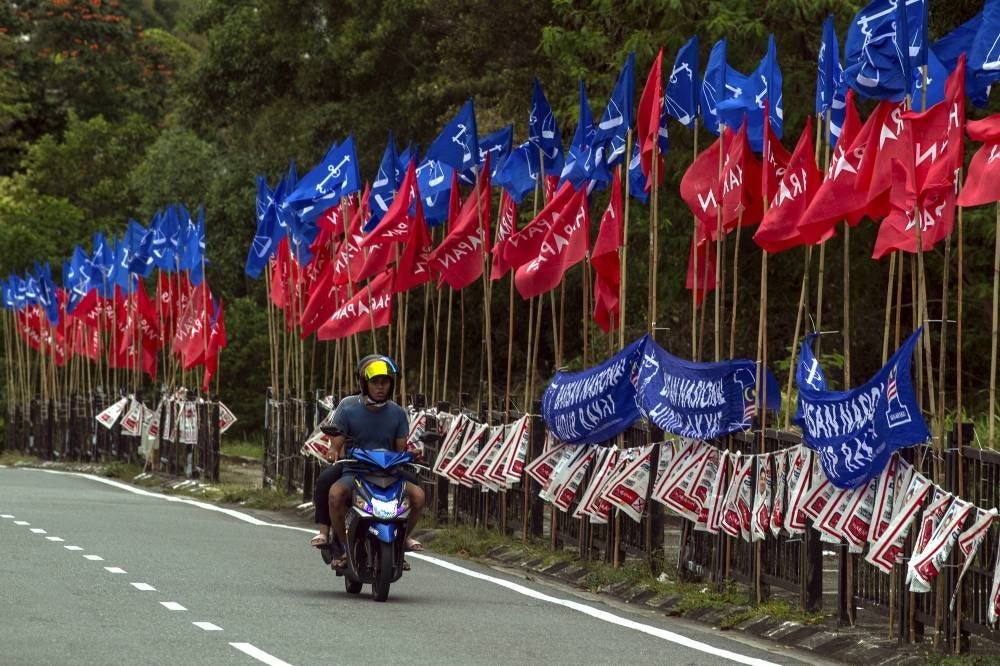POSTNORMAL PERSPECTIVES: How the young must save democracy from old man politics

SHAH ALAM - Following the conclusion of the recent Johor state election, with a landslide victory for Barisan Nasional (BN), the nation now braces itself for a possible early general election as pressure mounts from the victor to the current government to immediately return the mandate to the people.
While one could argue on the why or when the election would be called, whether BN and Umno would return to power, whether the opposition bloc comprising PH, Muda, Warisan, Pejuang and many others could get their act together or even whether PN would even exist after the election, the actual questions now posed by most Malaysians focuses on practical solutions rather than ideas that can translate to actually solving their day to day needs.
While veterans politicians could offer a plethora of advice, it is clear that Malaysians now want to see new and young faces in politics, giving their perspective instead rather than the same group of politicians spouting the same rhetoric or failed ideas.
The hope now lies in Malaysian youth and young leaders, who are risking their professional careers or opportunities to build their own businesses, heading into politics with the drive to fix what they deemed as a broken and scandal-ridden system.
The most recent and successful demonstration of youth power is Muda, who had contested seven seats in the Johor election and managed to clinch one seat - Puteri Wangsa - despite a plethora of challenges faced by the young party.
While Muda acknowledges that it would have not garnered enough support if not for their PH allies - PKR, DAP and Amanah - helping to canvas for votes during the election, the party has managed to set itself apart from its competitor, drawing large crowds during its ceramah session in the election.
While many argue that this does not translate to votes, people are generally more interested in Muda and what they can bring to the table compared to its PH allies.
Pundits would argue that Muda should not be too brash or aggressive to propel the party forward or risk their position within the opposition bloc, but even they acknowledge that the party is much more appealing to young voters and have a much bigger potential in the long run. A major factor is that the party seemed to be unburdened by old politicians.
Then we have parties like the DAP who are self-aware that a changing of the guard was necessary to remain relevant.
This comes after DAP supremo Lim Kit Siang retired from politics entirely and his son, Lim Guan Eng passed the baton to newly minted party secretary-general Anthony Loke Siew Fook.
Often portrayed as the boogeyman of Malaysian politics, with its new leadership lineup, the party is expected to chart a new path away from these negative labels and connotations as it heads into the general election and beyond.
Then you have a much more complicated party like PKR. Once feared as the backbone of the PH coalition, the party have suffered a fractious party election, defections and major defeats in elections, all in the span of four years.
Much of the party structure has been gutted with the defection of Datuk Seri Azmin Ali and several other MPs out from the party, along with a slew of division and branch leaders and ordinary members, citing supposed dissatisfaction with the party leadership.
The party, which boast 1.2 million followers, are now clamouring for younger leaders such as Nurul Izzah Anwar or former Pandan MP Rafizi Ramli to lead while some are even asking its once enigmatic leader Datuk Seri Anwar Ibrahim to gracefully step down.
As of late, the party seems to put an emphasis on putting the spotlight on their political opponents and their supposed criminal acts during elections instead of focusing on what the party or PH can bring to the table for their fellow Malaysians.
To offset this situation, young PKR leaders have instead launched a nationwide campaign dubbed the “Ayuh Malaysia” in a bid to woo fence voters for the coming election.
The campaign focuses on five core policies in order to solve societal issues such as unemployment, cost of living and housing among others.
This return to form is a clear effort to bring the party back from the brink by its young leaders.
Similarly, the party elections held this year in May is also expected to restore balance to PKR.
The party election along with the fact that Rafizi is contesting for the party’s deputy president post has caused some sense of hope to the party as it has suffered setbacks after setbacks in recent times.
Rafizi, a rising star within the party, had resigned as a vice president and pulled back from all party responsibilities following the Sheraton move back in Feb of 2020.
Prior to his abrupt retirement from politics, many posited that Rafizi’s strategic thinking has played a huge role in positioning PKR as the backbone of the PH coalition.
Then we have the grand old coalition of BN which is led by Umno, a party that has survived a slew of defections, criminal charges laid against a few of its top leaders, frozen assets and a crushing defeat in 2018 but yet managed to survive and now eager to govern the nation again.
The party which is synonymous with warlord politics now face a new challenge of being relevant among younger Malaysians who wanted to see change within the entire political structure.
While party deputy president Datuk Seri Mohamad Hasan has stated that BN would likely field 70 per cent new and young faces in the coming general election, the formula for doing so is still pretty much debated among top party leaders.
Running up to the Johor state election, BN leaders have dismissed the assertions that youth voters will play a large role in the election, stating that less than 7 per cent of new voters consist of 18 to 21 years old.
Banking on its vote bank in semi-rural and rural seats, although veteran party leaders will want to retain their position and contest in the coming election, it is very likely that BN too will have to submit to the fact that it will need to change with the times or risk another major defeat.
While the vested interest of old Malaysia would likely prevail in certain cases, even these old men (and women) in politics know that their time is coming to an end and they have to make way for a new batch of leaders to pave the way for a new Malaysia.
There could be some who may think that they could still control the situation from behind the scenes but Malaysians now are much more well versed in political machinations and unlikely to support toothless leaders.
Clearly, it is now up to young Malaysians regardless of their creed, race or political association to break the cycle and save Malaysian democracy from old man politics.
POSTNORMAL PERSPECTIVES is a column written by Danial Dzulkifly, Assistant News Editor at Sinar Daily
Download Sinar Daily application.Click Here!















